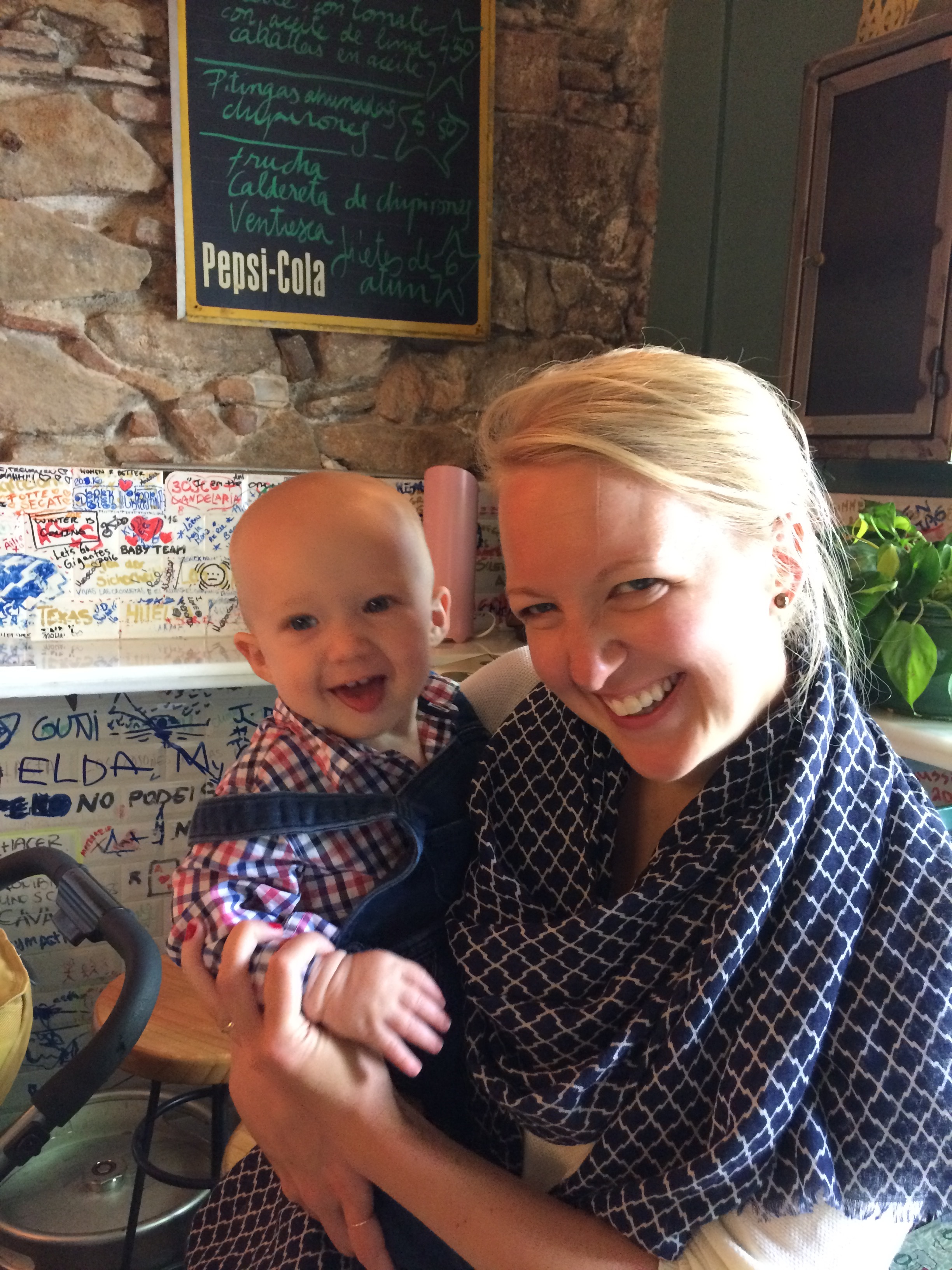Labor strikes are a way of life in Spain. In the year we’ve been here, we've seen all kinds of people strike. Air traffic controllers. Public transit officials. The folks who clean the airports. The people who administer driver’s license tests. The guys who handle airline baggage. And the taxi drivers. Ohhh, the taxi drivers.
Unlike the American variety, European labor strikes tend to be scheduled and finite, which means pre-announced disruptions with known end dates. For instance, during a long weekend getaway in December, we arrived at the Barcelona airport and legitimately thought terrorists had taken over; trash covered the floors, protest stickers covered the walls, and there was not a single open public restroom in sight. (Proof here.) As I seriously contemplated letting a full-bladdered Eliza pop a squat in a corner, an airport official showed us to a secret loo and promised that the strike would be over at 5:00PM the next evening. Sure enough, everything was back to normal when our return flight landed a few days later.
It’s an interesting strategy—this predictable, fixed-length strike—and at first we didn’t really understand it. Shouldn’t the workers hold out indefinitely, until the terms of their demands were met? If people know about and can temporarily plan around your strike, doesn’t that lessen the blow? But as we’re learning, striking Spanish laborers have figured out how to pack the maximum punch in the minimal amount of time.
Fast forward to yesterday afternoon. We had a 4:15PM flight scheduled from Barcelona to Stockholm, where we’ll be for three nights before heading to Iceland for a week, and then on to the U.S. (Subtext: there’s a whole lotta trip that depended on us making this first leg.) Luckily, ever-punctual Aaron insisted that we leave three hours before our flight, and even luckier, ever-procrastinating me actually acquiesced.
As we stood curbside, waiting to grab a cab — with three carry-on bags, one immense checked bag, two car seats, and two kids in tow — my heart sank as my taxi-hailing app broke the news: “Due to today’s taxi strike, we may not be able connect you with a car.” Uh oh. We scanned the streets. Nothing. Double uh oh.
Barcelona’s airport is poorly connected via public transit. But lacking other options, we made a split-second decision to hop on a train down to the city center, where we figured we’d catch the airport bus...or at least track down a defecting cabbie. Under the best of circumstances, the whole thing should take just over an hour. But during peak tourist season when there are no taxis anywhere, that number grows much, much higher; the line for the airport bus was a full city block long. It would take at least an hour to board a bus, plus another 45 minutes for the bus ride itself. We were never going to make it.
As time was evaporating, we decided to board the train back home and made the wallet-wrenching choice to drive our own car to the airport. But in one final “eff-you,” we discovered that the otherwise unoccupied taxi drivers had organized a parade of sorts: dozens of passengerless cabs lined up and drove as slowly as they could — I’m talking foot-off-the-gas, idle speed — down the highway toward the airport, intentionally backing up traffic for miles. With no time left, our car ended up in short-term parking. For the next three and a half weeks. We made it, but barely, and only after a choice few words were shouted in the privacy of our own car.
This taxi strike only lasts one day. But I’m quite certain that—a month from now, as we’re paying that obscene parking fare—we’ll still be thinking about those protesting cabbies. I just can’t say for sure that we’ll be sympathetically reflecting on their plight.
























































































